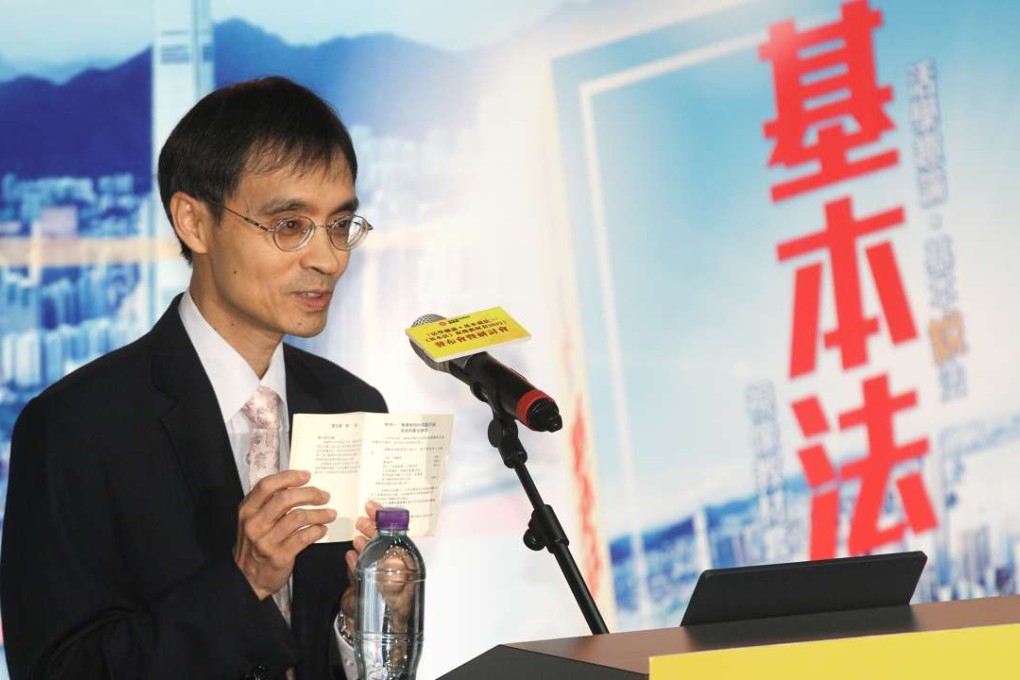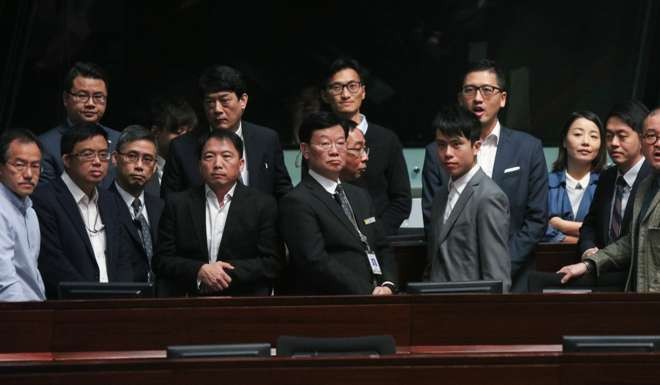‘Hong Kong courts can decide fate of at least 10 lawmakers despite Beijing ruling’
Law professor says interpretation of the Basic Law on oath-taking did not state if it applied retrospectively

Hong Kong judges have leeway to decide the fate of at least 10 pro-democracy lawmakers in the oath-taking saga despite Beijing’s ruling on the matter, a member of the Basic Law Committee says.
Albert Chen Hung-yee, an expert in constitutional law at the University of Hong Kong who sits on the body, said on Friday that the city’s courts were free to determine two issues: whether Beijing’s ruling had retroactive effect, and whether a court itself can overturn a verdict by the oath administrator.

The Standing Committee’s interpretation of Article 104 of the city’s mini-constitution – which stated a lawmaker must be “sincere” and “solemn” in taking their oaths – is widely seen as effectively disqualifying two pro-independence lawmakers, who were already facing a judicial review launched by the government to stop them retaking their oaths.
Yau Wai-ching and Sixtus Baggio Leung Chung-hang used a derogatory term to describe China and pledged allegiance to the “Hong Kong nation” during their swearing-in at the Legislative Council in October.
